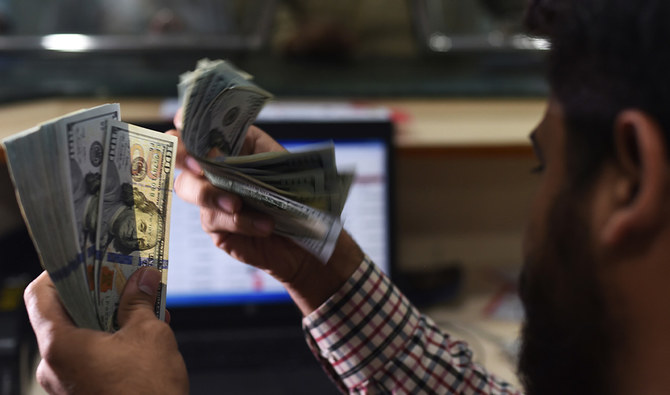KARACHI: Remittances from Pakistani workers employed abroad increased to $2.3 billion in September, a 31.2pc rise Year-on-Year (YoY) and up 9pc compared to the previous month, the country’s central bank said on Monday.
Remittances remained above $2 billion for a fourth consecutive month, capping a higher than expected inflow of finances in the first quarter of FY2020-21 for the South Asian nation, which has struggled with current account deficits and a depreciating currency.
“The level of remittances in September was slightly higher than SBP’s projections of $2 billion,” the State Bank of Pakistan (SBP) said in a statement, adding that first quarter figures were 31.1pc higher YoY.
Multiple factors contributed to the increase, including Pakistan’s crackdown on illegal channels, Samiullah Tariq, head of research and development at Pakistan Kuwait Investment Company, told Reuters.
Pakistan’s ability to curb illegal financial transactions, including financing of militant and extremist groups, has been under close scrutiny from international financial watchdog the Financial Action Task Force (FATF), which meets next week in Paris to review the country’s progress on key action points.
“Remittances are consistently increasing due to a combination of factors including limited physical mobility of expats to Pakistani due to Covid-19 resulting in more transfers through official channels,” Tariq said.
“Covid-19 test requirement is still there for the Middle East, UK and US, major countries from where remittances come, so people are travelling less,” Saad Hashemy, Executive Director BMA Capital Management, told Reuters.
“Despite Covid-19 more good news for our economy,” Prime Minister Imran Khan tweeted on Monday before the central bank released the numbers.
Prime Minister @ImranKhanPTI tweeted about remittances sent by Overseas Pakistanis, which rose to $2.3 billion in September 2020, making it the 4th consecutive month of a $2 billion+ remittances figure.
This is an increase of 31% over September 2019 and 9% over August 2020. pic.twitter.com/Q6bjNR5Mr5
— Prime Minister’s Office, Pakistan (@PakPMO) October 12, 2020
























It’s probably a fact that Pakistan has actually received much higher remittances than recorded in the past, meaning GDP has been underestimated and deficits over estimated. Now people cannot simply hand money to a relative flying back to Pakistan to disperse. My mother used to give tens of thousands of dollars per year this way to people in our village, but must now use western union since the pandemic.
The blog is really informative. Thanks for sharing.